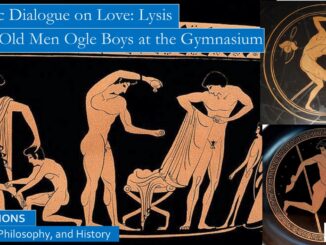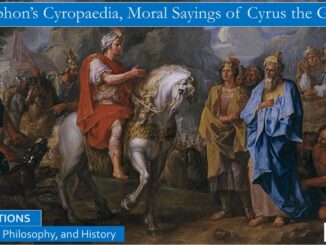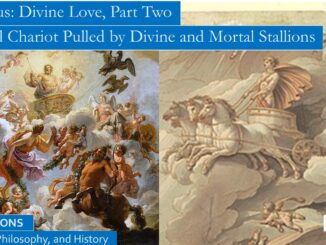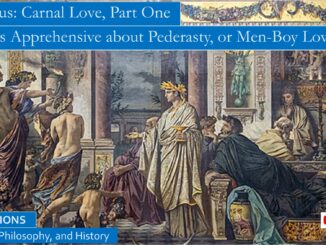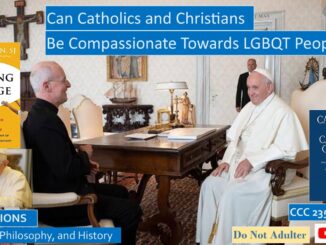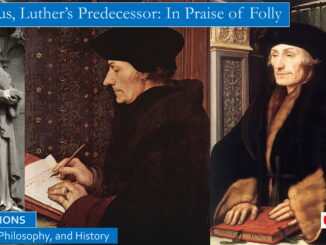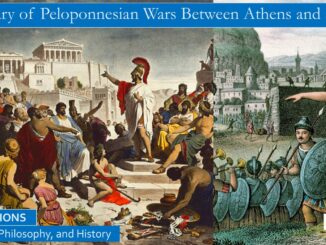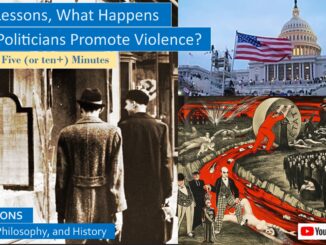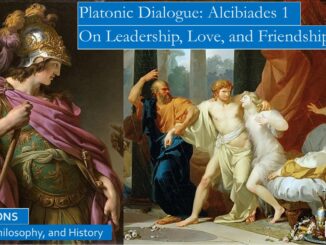
Platonic Dialogue Alcibiades 1, On Friendship, Leadership, and Love
In antiquity through the Renaissance, Alcibiades I was a highly regarded Platonic dialogue, and was often the first dialogue serious students of philosophy studied. However, many modern scholars deprecate this dialogue, arguing that it was not written by Plato. We demur, we tend to side with the ancient, medieval, and Renaissance scholars in such judgments, who tend to be inclusive, whereas modern scholars tend to be exclusive, demanding absolute certainty of proof. Our translator agrees with us, he says that the German scholar Schleiermacher first doubted its authenticity based on scholarly taste and a superficial reading. IMHO, although it does appear to differ from his other earlier dialogues, Alcibiades I was likely either written by Plato, or maybe by one of his brightest students, with his input. […]

